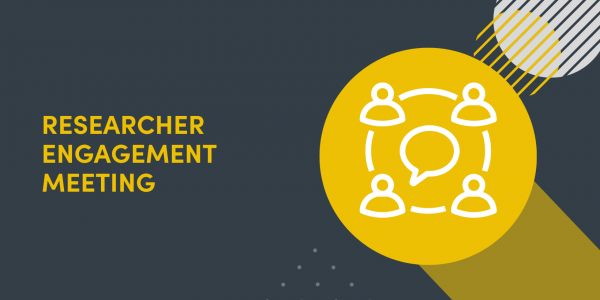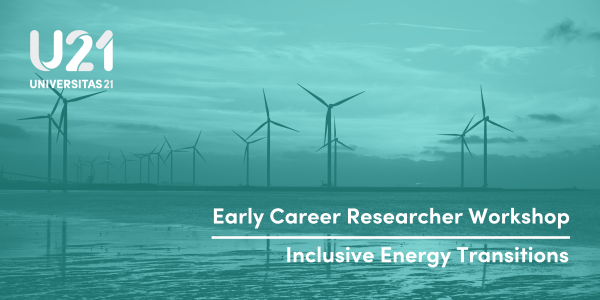A group to promote research collaboration across U21, share knowledge on internationally available funding streams and provide funding advice to U21 researchers.

The Research Collaboration Group was established to share knowledge between U21 member institutions on funding streams which were available for international collaboration in order to facilitate researcher mobility and collaboration by jointly applying to funding bodies. The U21 Research Leaders nominate colleagues from within their offices who have responsibility for research funding and international collaboration.
The aims and objectives of the group include:
1. An expert panel to assist and advise U21 researchers about international funding
One of the main barriers highlighted was lack of knowledge about how researchers can access international funding, as many are simply not always aware of the different funds available. It was noted that the ability to guide researchers to accurate information and, more importantly, a point of contact with regional expertise of those funding opportunities, would be a powerful tool. It was decided that this group should act as regional experts who could respond to U21 researchers with technical assistance and knowhow to aid international funding bids. A central, single point of contact would be provided and promoted around the network, and queries would be directed from this to the appropriate member of the panel.
2. Researcher mobility
Many of the EU members noted a number of funding streams which could be accessed to assist with researcher mobility into and out of Europe. A number of members expressed interest in seeing if U21 could collectively take advantage of these and agreed to work together following the meeting.
It was also noted that this group should share information concerning internal scholarships and fellowships, and additionally expressions of interest to host incoming researchers.
3. Project partnerships
As discussions progressed it became clear that different universities facilitated research bids in different ways. Some members were happy with a top-down ‘facilitated’ method, whereas others chose to let researchers approach them when they needed assistance/advice in association with research funding.
It was noted that not all members need to follow the same initiatives, but any members wishing to follow a top-down facilitated method could use the contacts within this group to explore possibilities.
Xavier Rodde, Head of Research Information and European Funding Support at the University of Birmingham is the Chair of the Group.
Key Contact
Events
-

A joint face-to-face meeting for the Researcher Engagement cluster groups.
12-15 September 2023 -

Hosted by The University of Queensland, the U21 Early Career Researcher workshop aims to enhance international networking and encourages the development of interdisciplinary collaborative research for those in the early stages of their career.
July 2024
Representative Group
-
Executive Director for Innovation, External Engagement, and Industry Relations
- Researcher Engagement: Research Collaboration Group Contact
-
Deputy Dean Research
- Researcher Engagement: Research Collaboration Group Contact
-
Deputy Dean, Research
- Researcher Engagement: Research Collaboration Group Contact
-
Director of Research
- Researcher Engagement: Research Collaboration Group Contact
-
Senior Policy Advisor, Research and Innovation
- Researcher Engagement: Research Collaboration Group Contact
-
Director, Research Strategy Office
- Researcher Engagement: Research Collaboration Group Contact
- Researcher Engagement: Steering Group Contact
-
Assistant Vice President, Research Administration
- Researcher Engagement: Research Collaboration Group Contact
-
Associate Vice President for Research Administration
- Researcher Engagement: Research Collaboration Group Contact
-
Research Bid Development Executive, Interim Research Manager (International)
- Researcher Engagement: Research Collaboration Group Contact
-
Associate Vice President for Research Development
- Researcher Engagement: Research Leaders' Group Contact
- Researcher Engagement: Research Collaboration Group Contact
-
Associate Vice Chancellor for Interdisciplinary Research and Strategic Initiatives
- Researcher Engagement: Research Leaders' Group Contact
- Researcher Engagement: Research Collaboration Group Contact
-
Contracts Manager (European), Research & Enterprise
- Researcher Engagement: Research Collaboration Group Contact
-
-
Associate Dean of Research and Postgraduate Studies
- Researcher Engagement: Research Collaboration Group Contact
-
Senior Director, Strategic Initiatives and Administration
- Researcher Engagement: Research Leaders' Group Contact
- Researcher Engagement: Research Collaboration Group Contact
-
Vice President for Research Affairs
- Researcher Engagement: Research Leaders' Group Contact
- Researcher Engagement: Research Collaboration Group Contact
-
Deputy Director, Office of Research Management
- Researcher Engagement: Research Leaders' Group Contact
- Researcher Engagement: Research Collaboration Group Contact
-
Research Coordinator
- Researcher Engagement: Research Collaboration Group Contact
-
Director, UCD Research
- Researcher Engagement: Research Collaboration Group Contact
- Researcher Engagement: Deans & Directors of Graduate Studies Contact
-
Director, Research Partnerships
- Researcher Engagement: Research Collaboration Group Contact
-
Deputy Dean Research
- Researcher Engagement: Research Collaboration Group Contact
-
Research Partnership Manager
- Researcher Engagement: Research Collaboration Group Contact
-
Senior Director, Strategic Initiatives and Administration
- Researcher Engagement: Research Leaders' Group Contact
- Researcher Engagement: Research Collaboration Group Contact
-
Senior Manager: Research Programmes
- Researcher Engagement: Research Collaboration Group Contact
-
Dean International Relations
- Researcher Engagement: Research Collaboration Group Contact
-
Research Development Executive; Europe, Financial & Business Services
- Researcher Engagement: Research Collaboration Group Contact
-
Head of Research Development and Support
- Researcher Engagement: Research Collaboration Group Contact
- Researcher Engagement: Steering Group Contact
-
Associate VP Research
- Researcher Engagement: Research Collaboration Group Contact
-
Office of Research Management
- Researcher Engagement: Research Leaders' Group Contact
- Researcher Engagement: Research Collaboration Group Contact
-
Research Manager
- Researcher Engagement: Research Collaboration Group Contact
-
Director, Research Ethics
- Researcher Engagement: Research Collaboration Group Contact
-
Head of International Research Engagement
- Researcher Engagement: Research Collaboration Group Contact
-
Acting Director, Research Strategy
- Researcher Engagement: Research Collaboration Group Contact
-
Director of Research, Dean of Faculty of Social and Political Sciences
- Researcher Engagement: Research Leaders' Group Contact
- Researcher Engagement: Research Collaboration Group Contact
-
Research Development Officer, European & International Support
- Researcher Engagement: Research Collaboration Group Contact
-
Science & Technology Division International Cooperation
- Researcher Engagement: Research Collaboration Group Contact
